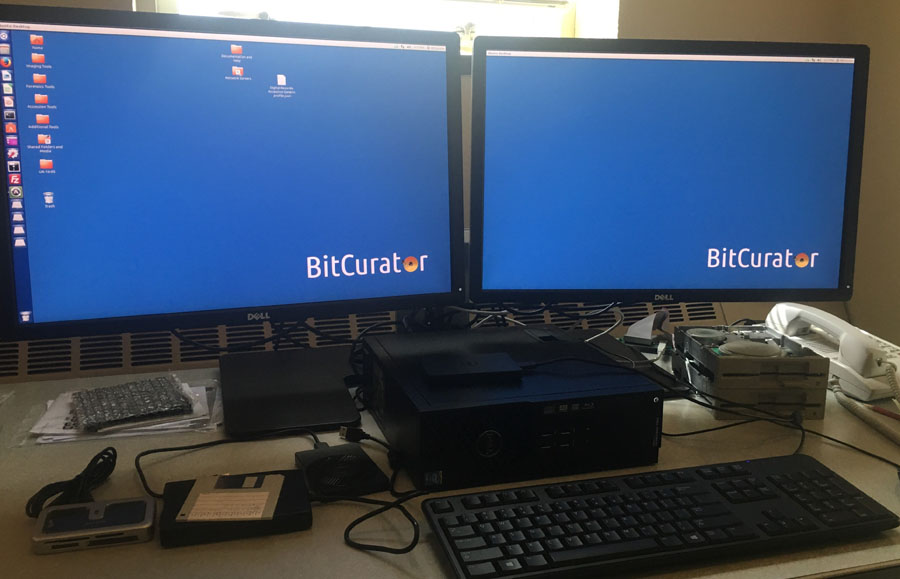By Eira Tansey, Digital Archivist/Records Manager
Within the archives profession, “Digital Archivist” is one of the fastest-growing job titles (http://digitalcommons.kennesaw.edu/provenance/vol31/iss2/5/). The Society of American Archivists offers a Digital Archives Specialist curriculum and certificate (www2.archivists.org/prof-education/das). And library and archives conferences abound on topics of an electronic and digital nature – like Saving The Web (https://www.loc.gov/loc/kluge/news/save-web-2016.html), the Digital Library Federation (https://www.diglib.org/), and the Software Preservation Network Forum (http://www.softwarepreservationnetwork.org/spn-forum/).
So what does a digital archivist do? Every digital archivist’s responsibilities will look slightly different depending on institutional mission, priorities and resources. As the first link indicates, there isn’t even professional consensus whether a digital archivist is one who works with digitization of analog material (like paper documents and manuscripts, rare books, maps, etc), or someone who works with “born-digital” materials. In many institutions, both of those responsibilities may be within the Digital Archivist’s charge. As UC’s Digital Archivist/Records Manager, my responsibilities center on working with born-digital archives, digital preservation, and overseeing UC’s Records Management program. I also work closely with my colleagues in Digital Collections on digitization projects (http://digital.libraries.uc.edu/).
All archivists have to learn how to communicate what they do to everyone from non-archivist library colleagues to family members over holidays. Sometimes I will discuss my job in a very simple way: “University Archives has paper records from the 19th century that we can still read. Part of my job involves learning how to make sure records that are created in electronic form today are still readable not just 100 years from now, but 20 years from now.”
This statement is always something akin to a truth serum – you immediately learn a ton about people’s fears of technology! People ask me whether I have a whole warehouse of old computers (no, but I do have old disk drives – and I can still open up text documents from a 1992 floppy disk!), whether I print everything out (definitely not), and whether I have to know how to code (not quite, but I’ve become much more comfortable with the command-line). I also have a dedicated workstation to help me process different kinds of electronic records.
And many of these fears are understandable – after all, lots of people who went to college in the window of early personal computing often have disks at home with their thesis, but no easy way to retrieve the files (especially now that most consumer computers no longer have optical drives, let alone magnetic disk drives). It’s understandable that people automatically assume there will be a massive digital dark age (https://issuesandadvocacy.wordpress.com/2016/05/11/there-will-be-no-digital-dark-age/). The good news is that while obviously archivists alone cannot preserve all of the digital cultural heritage being created every day, digital preservation is getting a lot of notice outside our profession (http://www.nature.com/news/digital-forensics-from-the-crime-lab-to-the-library-1.19998). And if you happen to have some important digital files you’re afraid of losing? Luckily you don’t have to be an archivist to preserve your own stuff. This is a good guide to get started: http://digitalpreservation.gov/personalarchiving/
The Archives and Rare Books Library is located on the 8th floor of Blegen Library. We are open Monday through Friday, 8:00 am-5:00 pm. You can also call us at 513.556.1959, email us at archives@ucmail.uc.edu, visit us on the web at http://www.libraries.uc.edu/arb.html, or have a look at our Facebook page, https://www.facebook.com/ArchivesRareBooksLibraryUniversityOfCincinnati.

